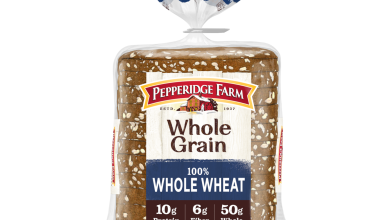Fresh Pineapple Nutrition: Health Benefits, Uses, and Recipe Ideas
Pineapple (Raw, Traditional Variety)
Pineapple, the vibrant tropical fruit known for its sweet and tangy flavor, is not only delicious but also packed with essential nutrients. This fruit is rich in vitamin C and contains various minerals, making it an excellent choice for boosting your immune system and supporting overall health. Whether enjoyed fresh or used in a variety of culinary applications, such as fruit salads, smoothies, or tropical desserts, pineapple adds a refreshing touch to any dish.
Nutritional Information (Per 100g Serving):
| Nutrient | Amount |
|---|---|
| Energy | 45 kcal |
| Protein | 0.55 g |
| Fat | 0.13 g |
| Saturated Fat | 0.0 g |
| Carbohydrates | 11.82 g |
| Fiber | 0.0 g |
| Sugar | 8.29 g |
| Calcium | 13 mg |
| Iron | 0.25 mg |
| Magnesium | 12 mg |
| Phosphorus | 9 mg |
| Potassium | 125 mg |
| Sodium | 1 mg |
| Zinc | 0.08 mg |
| Copper | 0.081 mcg |
| Manganese | 1.593 mg |
| Selenium | 0.0 mcg |
| Vitamin C | 16.9 mg |
| Thiamin (B1) | 0.078 mg |
| Riboflavin (B2) | 0.029 mg |
| Niacin (B3) | 0.47 mg |
| Vitamin B6 | 0.106 mg |
| Folate (B9) | 11.0 mcg |
| Vitamin B12 | 0.0 mcg |
| Vitamin A | 3.0 mcg |
| Vitamin E | 0 mg |
| Vitamin D2 | 0.0 mcg |
Allergen Information:
Pineapple is naturally free of common allergens such as gluten, dairy, and nuts. It is generally considered safe for most individuals, but those with a sensitivity to acidic foods or a history of allergies to other tropical fruits, like papaya or kiwi, may want to exercise caution.
Dietary Preferences:
- Vegan: Pineapple is suitable for a plant-based diet.
- Vegetarian: Perfect for vegetarian meals.
- Gluten-Free: Naturally gluten-free, making it an ideal choice for those with gluten intolerance or celiac disease.
- Low in Fat: This fruit is an excellent option for anyone following a low-fat diet.
- Low in Calories: With only 45 calories per 100g serving, pineapple is a great option for those looking to manage their weight.
Health Benefits:
Pineapple is a nutritional powerhouse, especially known for its high vitamin C content, which is essential for maintaining a healthy immune system. Additionally, it contains bromelain, an enzyme with anti-inflammatory properties that may help improve digestion. The potassium in pineapple helps support proper muscle function and regulate blood pressure. With its low calorie and sugar content, it’s also a satisfying snack option for those looking to curb their sweet tooth without overindulging.
Culinary Tips:
Pineapple can be enjoyed fresh, grilled, or added to a variety of dishes, from savory to sweet. Try tossing it into salads, blending it into smoothies, or pairing it with grilled meats for a tropical twist. You can also use pineapple in salsas, desserts, or as a topping for pizza. Its versatility makes it a valuable addition to both everyday meals and special occasion recipes.
Conclusion:
Pineapple is more than just a flavorful tropical fruit. It offers a range of health benefits, including boosting immunity, aiding digestion, and providing essential vitamins and minerals. Whether you’re incorporating it into a fresh fruit salad, using it as a natural sweetener in smoothies, or enjoying it on its own, pineapple is a tasty and nutritious option that supports a balanced and healthy diet.








